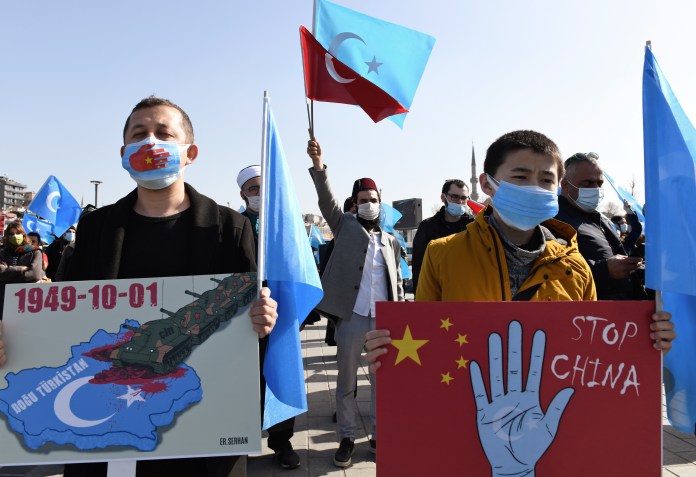
Genocide is not a “different norm” as President Biden called the treatment of Uyghur Muslims in Xinjiang. The mass internment of Uyghurs in the province has led to international scrutiny, yet the Biden Administration has been slow to respond. There is more of a concern for economic policy with China than human rights. A reminder that money keeps being prioritized over lives.
China’s crackdown on the Uyghur community was justified by the nation which claimed that the Muslim minority held “extremist” views that are a threat to security. The Xinjiang government was so concerned with the people’s religion that they even passed a law prohibiting men from growing long beards and women from wearing veils. If that doesn’t speak Islamophobia then how about the thousands of destroyed mosques? Since 2017, an estimated 30% of mosques have been demolished, and another 30% damaged in some way, according to The Guardian.
The Uyghurs being held in China’s so-called “re-education” camps, a nicer term for “concentration,” are forced to abandon Islam and accept atheism, the Chinese government’s and Communist Party’s official belief system. They are to pledge allegiance to the Chinese state and chant “all hail Chinese President Xi Jinping” in their cells.
The millions of detained Muslims have been physically and psychologically tortured. Thousands of children have been separated from their parents, and women have been subject to forced birth control methods. What are Muslim-majority countries doing about this? Nothing. The double standard coming from some nations such as Saudi Arabia, Egypt and Qatar proved once again that, just like the United States, it’s easier to turn a blind eye when you economically benefit. They applauded China’s commitment to protecting their country from “terrorism, separatism and religious extremism.” Their hypocrisy is evident of course considering that in 2019 they urged for other nations to take measures against increasing islamophobia.
The terror against Uyghur Muslims is not bound to stop any time soon and the silence coming from numerous nations concerning the matter shows just how much power China has over international affairs. However, in recent months, people have taken to social media to speak out against the issue but the difficulty of getting that message across on a large scale remains. This genocide is not a trend. It is not something that will come and go with a few legislation changes. It is not like posting a black square on your Instagram and thinking you’ve done enough. Thousands are dying a day in these concentration camps just because they choose to believe something different from the norm. It’s important that the United States recognizes it as a serious issue against humanity.
Every year countries around the world recognize the millions of lives lost in the Holocaust. If people do not push for the recognition of the human rights violations being committed in Xinjiang, then one day these people will also have a remembrance day. It’ll be a memorial day remembering all of the lives that could have been saved if policies actually concerned themselves with people rather than wealth.
